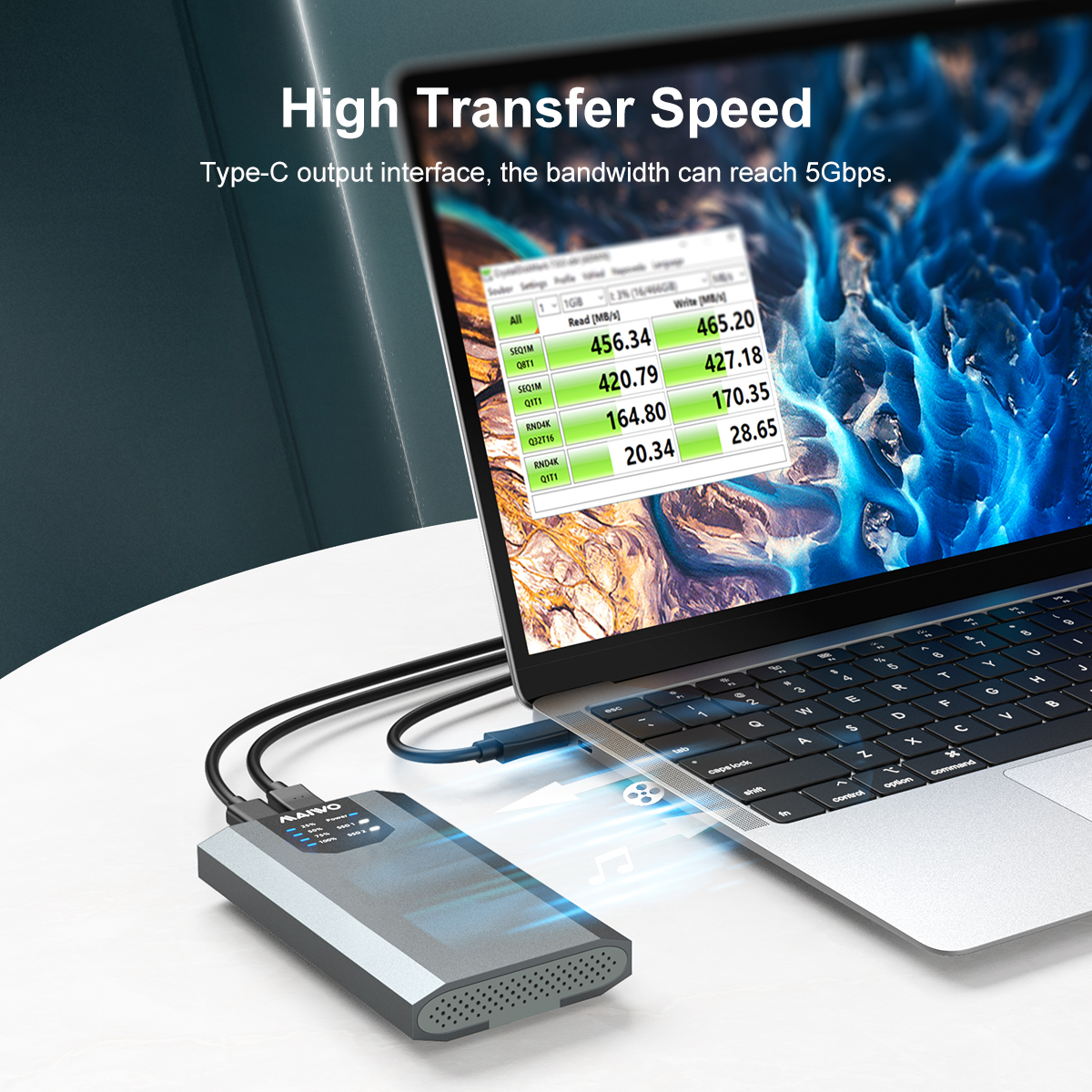In the digital age, where data is paramount and storage needs are constantly evolving, efficient data transfer and management solutions are essential. Hard drive docking stations have emerged as versatile tools that offer convenience and flexibility for data transfer, backup, and storage. This article explores the potential of hard drive docking stations as a solution to various data transfer needs, highlighting their benefits, use cases, and considerations.
The Versatility of Hard Drive Docking Stations:
Hard drive docking stations are external devices that allow you to connect internal hard drives (HDDs) or solid-state drives (SSDs) externally to your computer. This versatility is particularly useful in scenarios that require frequent data transfer, backup, and data recovery. Let's delve into how these docking stations can address your data transfer needs:
1. Efficient Data Transfer:
Hard drive docking stations enable high-speed data transfer between drives and computers. Whether you're upgrading your system, migrating data to a new drive, or simply need to access data from different drives, these docking stations facilitate seamless and rapid data transfer, saving you valuable time.
2. Backup and Data Recovery:
Data loss can be catastrophic, especially when important files are involved. Docking stations offer a reliable solution for creating backups of your data. By allowing you to connect multiple drives for regular backups, you can safeguard your data against unforeseen circumstances like hardware failure, viruses, or accidental deletion.
3. Cloning and Drive Duplication:
When you need to clone or duplicate a drive, such as when upgrading to a larger capacity drive or setting up multiple systems with identical configurations, docking stations provide an efficient and straightforward method. You can clone drives without opening your computer or using complex software.

4. Accessing Old Drives:
If you have old hard drives lying around from previous computers, docking stations allow you to access and retrieve data from these drives without the need to install them internally. This is particularly helpful for accessing archived files, photos, and documents.
Benefits of Using Hard Drive Docking Stations:
a. Compatibility: Docking stations are compatible with various drive types, including SATA and IDE, making them suitable for a wide range of drives.
b. Plug-and-Play: They are user-friendly and require minimal setup. Simply plug in the docking station, insert the drive, and you're ready to go.
c. Cost-Effective: Investing in a docking station can save you money compared to purchasing multiple external drives.
d. Space Efficiency: Docking stations take up minimal space, making them ideal for both home and office setups.
e. Data Integrity: Docking stations ensure secure data transfer and prevent corruption during the transfer process.
Use Cases for Hard Drive Docking Stations:
1. IT Professionals: IT technicians and professionals can use docking stations to troubleshoot, recover data, and perform system upgrades efficiently.
2. Enthusiasts and Gamers: Gamers and tech enthusiasts who frequently upgrade hardware can use docking stations to manage data across different drives.
3. Content Creators: Photographers, videographers, and content creators can easily manage and back up large media files using docking stations.
4. Small Businesses: Small businesses can use docking stations for cost-effective data management and backup solutions.
5. Home Users: Everyday users can benefit from docking stations by easily accessing and transferring data between old and new drives.
Considerations When Choosing a Docking Station:
a. Drive Compatibility: Ensure the docking station supports the drive types you intend to use.
b. Data Transfer Speed: Look for USB 3.0 or higher for faster data transfer rates.
c. Number of Bays: Consider the number of drive bays you need for your intended tasks.
d. Additional Features: Some docking stations may include features like offline cloning or RAID support.
Conclusion:
Hard drive docking stations have proven themselves as valuable tools for addressing a variety of data transfer needs. From seamless data transfer and backup to drive cloning and access, these devices offer a versatile and user-friendly solution for individuals and professionals alike. As technology continues to advance, hard drive docking stations remain a reliable option for managing and transferring data efficiently and securely. Whether you're an IT professional, content creator, or a home user, incorporating a high-quality docking station into your workflow can greatly enhance your data management capabilities.